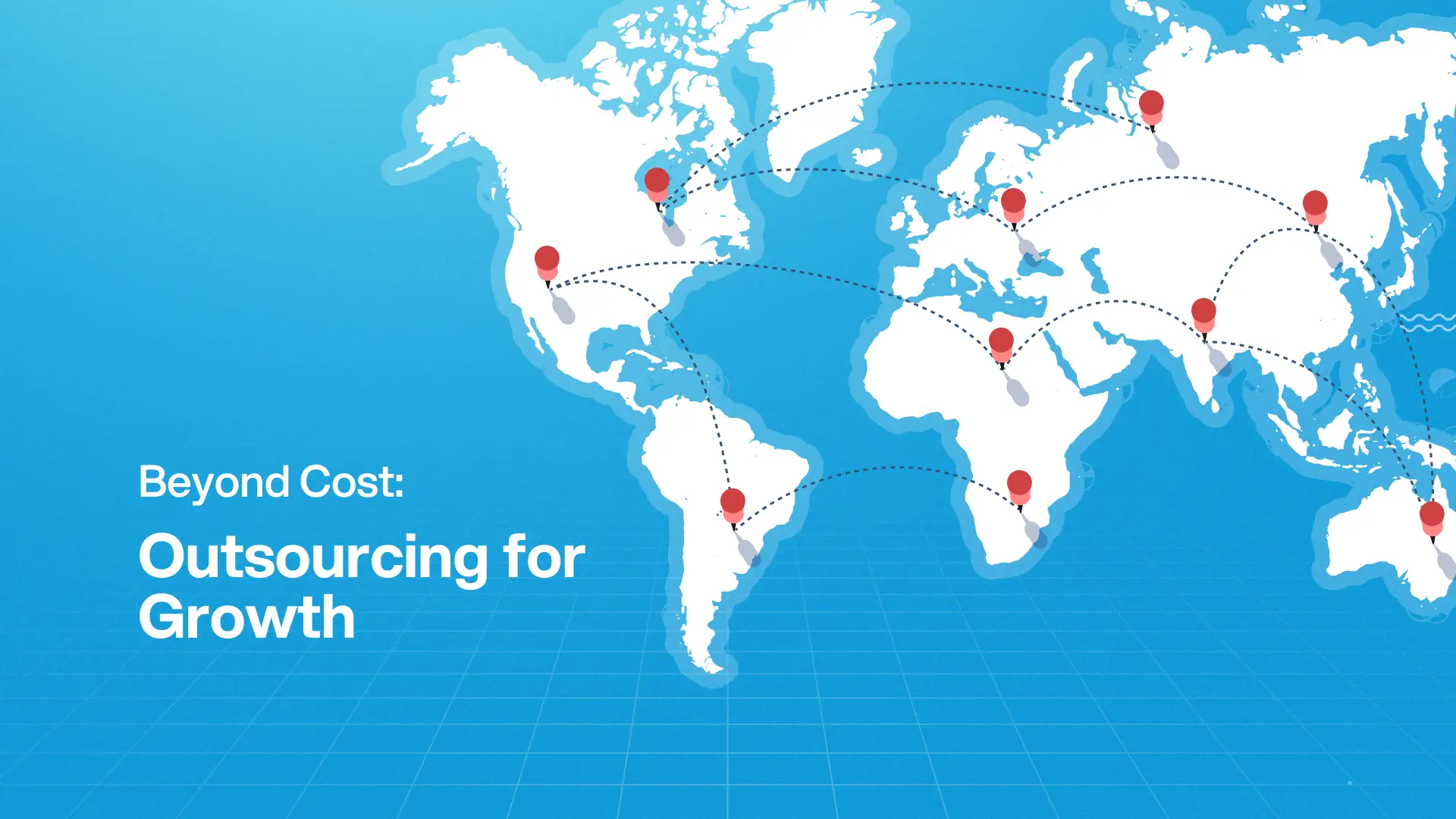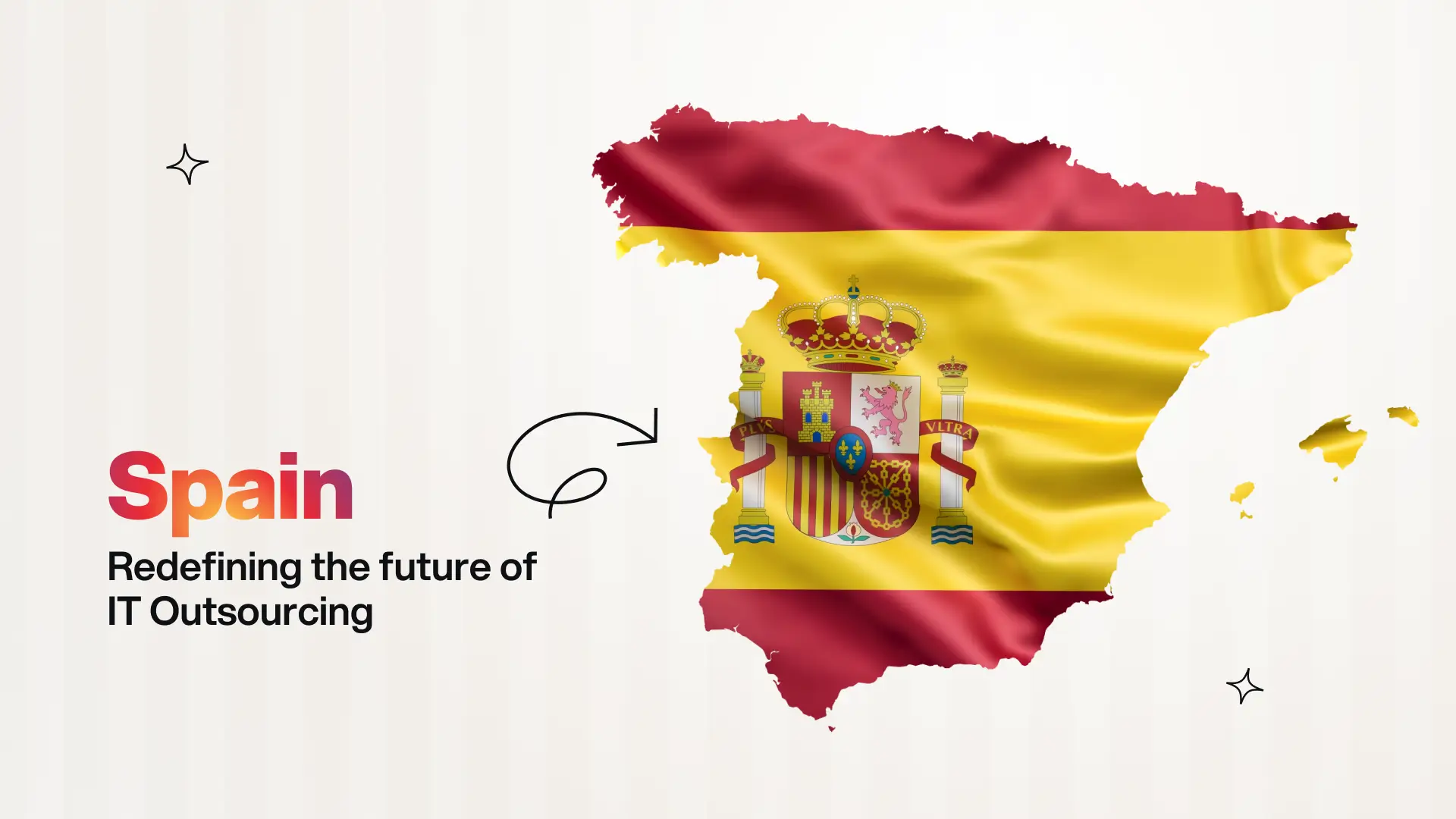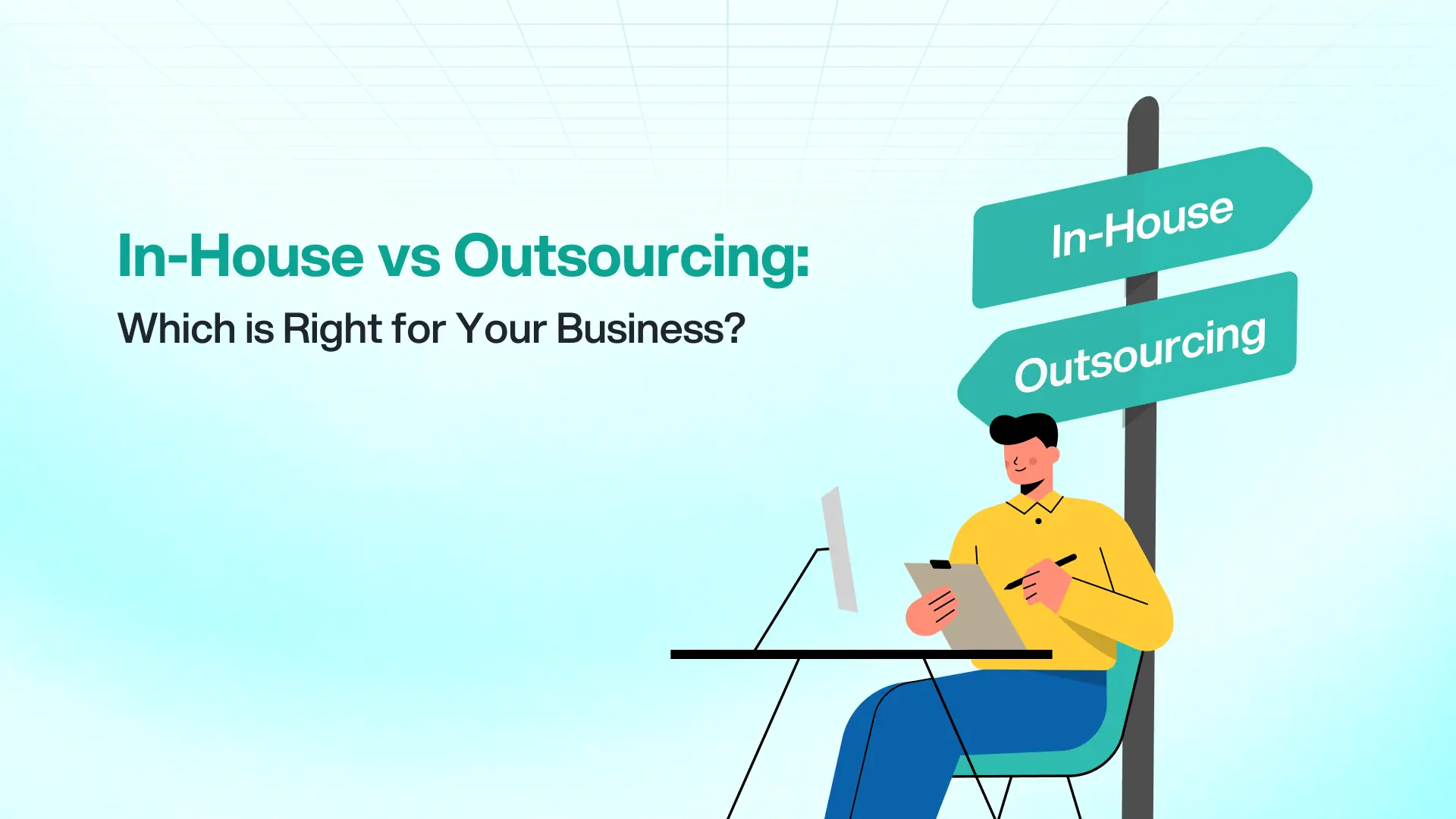Post Activity
 317
317
Table of Content
Share This Post
Table of Content
Bain & Company and KLAS Research revealed that 56% of U.S. healthcare executives now rank software and technology as top strategic priorities. Yet, many providers remain constrained by legacy systems and limited in-house development capacity. Outsourcing healthcare software development is emerging as a smart solution to this challenge. Outsourcing enables organizations to scale faster, innovate confidently, and maintain compliance without overburdening internal teams.
Innovation Without Bottlenecks
Healthcare organizations are under constant pressure to innovate while maintaining care delivery. However, relying solely on in-house teams and maintaining legacy systems slows progress. Outsourcing brings in expert developers who are fluent in healthcare workflows, regulatory compliance, and system integrations. Additionally, this allows your internal staff to stay focused on clinical priorities.
These outsourced healthcare software development teams contribute immediately by:
- Designing cloud-native, auto-scaling architectures ready for high patient loads
- Building real-time alert systems that handle mission-critical events (e.g., code blue protocols)
- Developing AI-powered triage tools that support urgent decision-making
These capabilities are critical for healthcare industries facing operational pressures and rising patient expectations. Furthermore, such speed, scalability, and intelligence enable healthcare organizations to adapt quickly and effectively.
Accessing Certified Healthcare Software Expertise
Outsourced partners with healthcare-specific credentials shorten development timelines by eliminating onboarding delays. They understand what it takes to build compliant, secure, and interoperable systems. More importantly, they have hands-on experience with:
These developers already understand audit trails, coding standards, and patient privacy. This ensures your software meets compliance from day one.
Quick Deployment in Critical Moments
Time is everything in healthcare. Whether it’s building a triage dashboard during a flu surge or rolling out telehealth in a crisis. Delays can directly impact patient outcomes. Outsourced teams support speed-to-market through:
- Agile execution across rotating time zones, ensuring 24/7 development progress.
- Rapid prototyping of triage and emergency communication apps to support real-time decision-making.
- Deploying secure telemedicine solutions during public health events when physical care access is limited.
Building and scaling backend logic to support mass casualty alerts, surge events, and crisis response infrastructure.
Outsourced development services help mitigate risk during emergencies by leveraging agile methodology, dedicated teams, and cloud-based infrastructure to ship fast and scale automatically.
Thinking of Outsourcing?
Access a wide range of outsourcing companies and find your best fit.
Cost-Efficiency While Preserving Quality
Building an in-house team with deep healthcare expertise is expensive and often impractical. A study involving over 500 hospitals and inpatient organizations found that 90% of health executives are exploring cost savings by partnering with third-party vendors.
Offshore healthcare software development allows organizations to scale efficiently by:
- Partnering with experts who offer deep domain knowledge at optimized cost structures.
- Deploying cross-functional teams (including product managers, developers, QA engineers, and regulatory consultants) without the overhead of full-time hires.
- Assigning dedicated developers experienced in building HIPAA-compliant backend systems and secure integrations.
Using transparent billing models, such as sprint-based or milestone-driven pricing, for predictable budgeting and accountability
Unlike freelancers or generalist firms, healthcare-focused outsourcing companies bring a wide range of contextual experience, reducing trial-and-error and delivering ROI faster.
Strengthening Compliance and Data Security
Launching a compliant platform from scratch can take months. Outsourced partners often come equipped with pre-validated frameworks for HIPAA, GDPR, and regional healthcare regulations.
They also bring proven workflows for:
- Implementing secure authentication, user access control, and data encryption aligned with HIPAA and GDPR.
- Maintaining detailed audit logs and real-time monitoring for regulatory inspections and regular audits.
- Ensuring seamless integration with electronic health records (EHRs) and insurance systems.
- Following strict coding standards and data exchange protocols like HL7, FHIR, and SNOMED.
This minimizes risk exposure for healthcare providers, insurers, and patients. At the same time, it satisfies audit and regulatory checkpoints with confidence.
Supporting Telehealth, AI, and Remote Diagnostics
Modern healthcare is shifting from reactive care to continuous, connected engagement. Outsourcing makes it easier to launch or expand:
- Telemedicine platforms with encrypted video and scheduling
- AI-driven risk stratification models and diagnostics
- Healthcare LMSs for clinician education and training
- Mobile apps for patient engagement, follow-up, and medication adherence
- Virtual reality training tools for high-stakes clinical scenarios
These solutions improve patient satisfaction while reducing administrative burdens, particularly in hybrid care environments.
Reducing Technical Debt and Modernizing Legacy Systems
Legacy systems remain one of the biggest obstacles to digital transformation in healthcare. Outsourcing allows you to modernize legacy systems incrementally without disrupting internal workflows.
Their impact includes:
- Rebuilding outdated applications using modular, scalable architectures.
- Migrating on-premise EHRs to cloud-native platforms.
- Preserving data continuity through backward-compatible interfaces.
This approach limits downtime and helps internal teams focus on high-value clinical tasks. Consequently, the transition is smoother, the system is more resilient, and there is long-term maintainability.
24/7 Development and Emergency Response Support
Global outsourcing healthcare software development models turn time zone differences into a productivity advantage. A well-structured offshore team can hand off progress at the end of one shift and receive code review or QA updates by the next morning.
Such models allow you to:
- Execute continuous integration and deployment (CI/CD) cycles
- Deliver emergency rollouts for critical tools around the clock
- Maintain real-time communication through agile ceremonies and status reviews
By using remote teams or dedicated developers, you can cover global operations while ensuring effective communication and code quality.
Final Thoughts
Outsourcing healthcare software development has become a strategic enabler for healthcare organizations aiming to modernize quickly and efficiently. It is no longer just a cost-saving tactic. From AI-powered triage tools to secure telehealth platforms and scalable cloud-based systems, outsourced teams accelerate the delivery of high-impact digital solutions.
By partnering with domain-certified developers, healthcare providers benefit from 24/7 development cycles, built-in regulatory compliance, and flexible resource scaling. This approach drives operational agility, improves care delivery, and helps achieve better outcomes for both patients and providers in a highly competitive and evolving healthcare landscape.
Ready to Build Your Team?
Let’s create together, innovate together, and achieve excellence together. Your vision, our team – the perfect match awaits.






